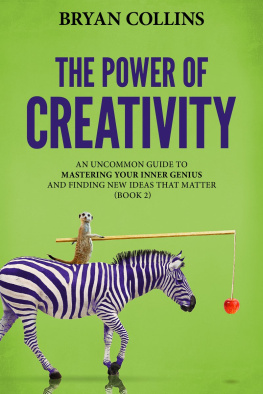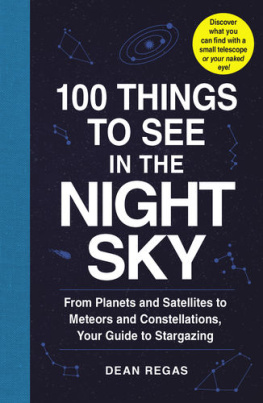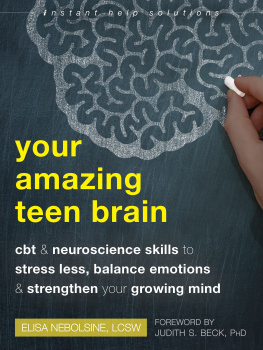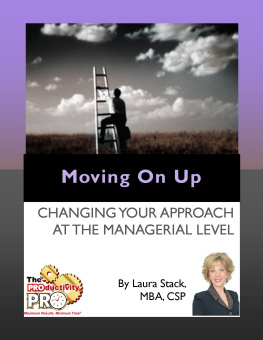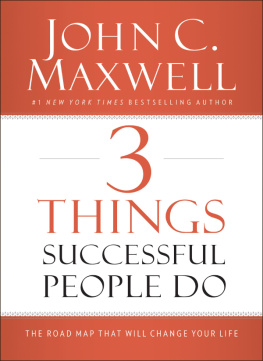Advance praise for Framespotting:
This book is a really salutary encouragement to challenge what you think are the obvious ways to frame questions and possibilities. It is hopeful, realistic and original; what more could you ask from a book about learning to think afresh?
Rowan Williams
Master of Magdalene College, Cambridge;
former Archbishop of Canterbury
A very enjoyable read. I loved the simple, crisp language, and the illustrations work really well. Theres a refreshing determination here to change the whole mood music behind the way we address important issues.
Jonathon Porritt
Founder Director, Forum for the Future;
Chancellor of Keele University
A stimulating, lateral view of life
Rt Hon Peter Hain MP
Former Leader of the House of Commons;
former Secretary of State for Work and Pensions
At a time when the medium has become the message, and transformed the message, it is crucial that we retain the ability to think outside the box and the frame in other words laterally. This work encourages just that in an entertaining and challenging way.
Michael Mansfield QC
Radical Lawyer;
Professor of Law at City University, London
This is a book that flips our way of thinking - when we do that we open our eyes to new ways of approaching old and redundant ways of doing. Zoom! - suddenly our perspective shifts and new solutions emerge.
Polly Higgins
Co-founder of the Earth Law Alliance;
author of Eradicating Ecocide
a delightful lightness of touch a wide range of new ways to understand and think about the challenges ahead. It is simply and effectively illustrated, and has insights that will refresh both the expert and someone new to the subject.
Andrew Simms
Fellow of the New Economics Foundation;
author of Cancel the Apocalypse
First published by iff Books, 2014
iff Books is an imprint of John Hunt Publishing Ltd., Laurel House, Station Approach, Alresford, Hants, SO24 9JH, UK
www.johnhuntpublishing.com
www.iff-books.com
For distributor details and how to order please visit the Ordering section on our website.
Text copyright: Laurence and Alison Matthews 2013
Ebook version ISBN: 978 1 78279 822 4
Print version ISBN: 978 1 78279 689 3
All rights reserved. Except for brief quotations in critical articles or reviews, no part of this book may be reproduced in any manner without prior written permission from the publishers.
The rights of Laurence and Alison Matthews as authors have been asserted in accordance with the Copyright, Designs and Patents Act 1988.
A CIP catalogue record for this book is available from the British Library.
Design: Laurence and Alison Matthews
Print version printed and bound by CPI Group (UK) Ltd, Croydon, CR0 4YY
For Annette and Helen
and the world they will inherit
PART I
Out of Sight
Chapter 1
Behind the Scenes
Ever wanted to look behind the scenes at a theatre, a rock concert, or an airport? Of course you have: backstage is a hidden world where exciting things go on, a secret world most of us rarely get to see.
Theres a hidden world behind everyday life too. Framing operates behind the scenes, affecting how we view things, large and small. In this book well show you how to spot when frames are influencing your thinking.
Framespotting can unlock new, more realistic, more effective and saner ideas than those were generally presented with. It can be liberating, too; and youll see that theres an inspirational story going on all around us, and that youre part of it.
Intrigued? Come and see backstage
How do we get backstage?
Well, the doors are hidden in plain sight. We have to learn to see them.
How do we see things? Take society, for example. When we think about changing societys attitude to something, we tend to think of something huge and difficult to turn, like a supertanker.
But were not bits of metal welded together; were individuals, making decisions independently, but linked together by constant, rapid communication. Perhaps, instead of a supertanker, were like fish, or a flock of birds: able to change direction in an instant if we need to.
How we see things is important.
Whats wrong with this family tree? Well, nothing. Its not usual to put ancestors at the bottom and children at the top, but theres no law against it. Real trees grow upwards, so why not family trees?
Its a choice, like putting north at the top of a map (in medieval Europe, maps often had south or east at the top, rather than north).
So what? Well, these choices can influence our thinking without us being aware of it. For example, we draw organization trees for corporations with the management at the top. This means that managers are to be looked up to and so naturally deserve more money. They find this congenial, and commandeer the top floor of office buildings for the same reason. Subconsciously, we think of up being better than down.
Is it just possible that this subtly changes how we see the upper and lower classes, or the global North and South?
The way we see things is influenced by the words we use.
The phrase tax relief is like this. It encourages us to think of tax as a burden, or affliction: something we need relief from (as opposed to, say, thinking of tax as the membership subscription to a society which provides police, roads and schools).
We seldom think about things in isolation; usually we try and fit them into our view of the world. We try to think about something abstract, like a tax, by thinking about something more tangible or familiar. Like a burden, perhaps.
But looking at things through that frame can nudge us into certain attitudes without our realizing it. Burdens are bad, and should be reduced whenever possible. So taxes should be reduced too.
Now maybe taxes should be higher; maybe they should be lower. You decide. But if youre being manipulated into thinking one way rather than the other, this amounts to thought-control. Youve been framed.
What should the Japanese government do about the new K-bots, now that this extremely popular latest thing has turned out to be lethal? Should the government ban K-bots?
Youd think so, perhaps. But K-bots bring in taxes and generate jobs. So the government supports them. It allows anyone to possess and use K-bots and ignores complaints about them. And the government goes further: people are rarely punished if their K-bot kills someone. The people without K-bots are retreating from previously public areas. The only protection against K-bots seems to be to get one yourself, and so K-bots are spreading, despite the carnage they cause.




